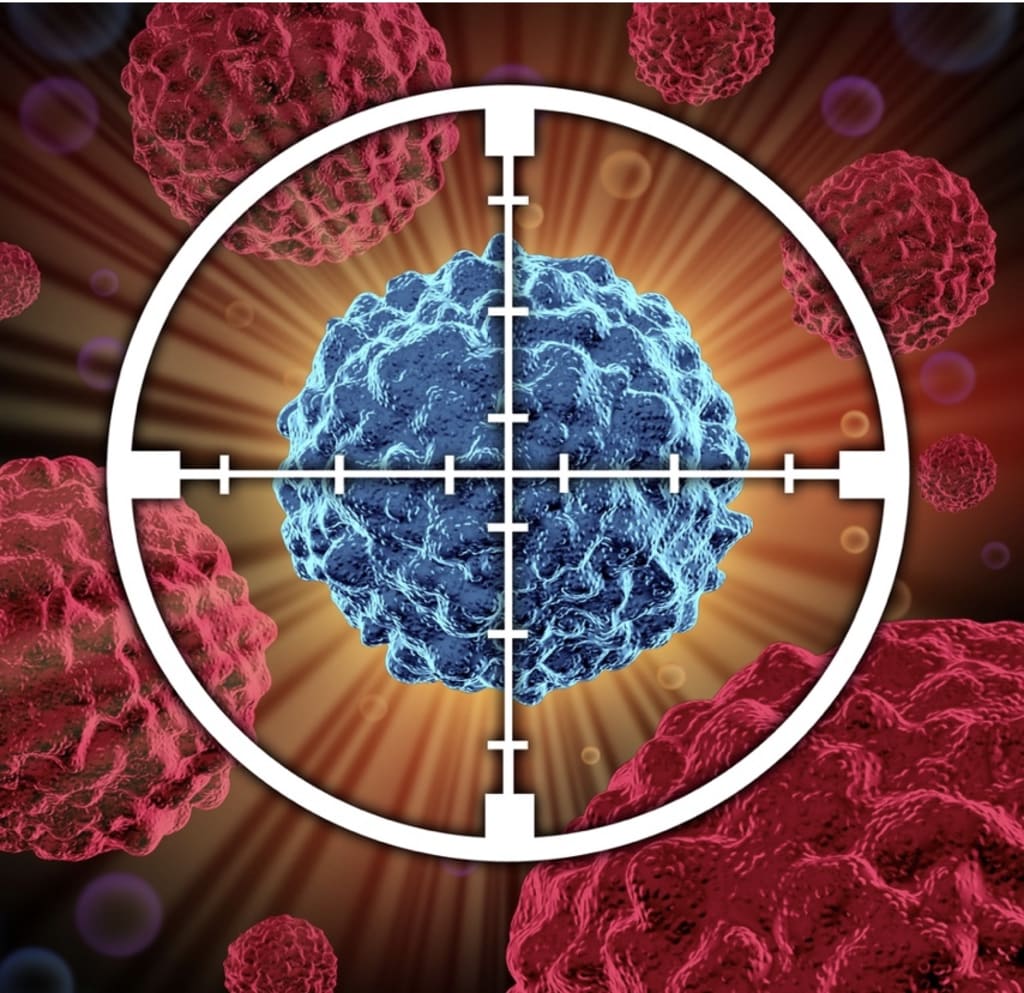My body just killed cancer
It happens to be a regular thing.

Your immune system silently destroys one of your cells, preventing it from becoming cancerous and saving your life. This happens regularly, with most cancer cells being eliminated without detection. However, this is a difficult task due to the nature of cancer cells, which act as individuals and can harm the body.
So, what is cancer, and how does our body fight it all the time?
Cancer is the uncontrolled multiplication of corrupted cells. There are hundreds of types of cancer, as it can arise from any cell in the body. Some cancers grow slowly, while others are aggressive and deadly. When a cell turns into cancer, it becomes something both old and new.
Through billions of years of evolution, cells have adapted to their environment in order to survive. Eventually, cooperation emerged as a new way of life which allowed cells to specialize and become more successful together. However, cooperation also requires sacrifices.
For a multicellular being to stay healthy, the collective must matter more than the individual cell. Cancer cells stop being part of the collective and become individuals again. Your body can handle a few rogue cells, but some cancer cells divide and become new organisms, taking resources you need to survive and destroying organs in the process. Despite the harm they cause, cancer cells are not evil. They follow their corrupted programming.
”Soul of the Cell”
Your cells have DNA in their nucleus. Genes are instructions for building proteins and determining when to make them. Ribosomes use these instructions to make proteins, which determine what your cells can do. A corrupt gene means a corrupt protein, which becomes important later.
Your DNA mutates tens of thousands of times each day, mostly without cause. Most mutations are fixed quickly or not problematic, but damage accumulates over time as cells make copies of themselves. Mistakes in copies become part of new copies and all those that follow.
Various factors, including smoking, alcohol consumption, obesity, asbestos exposure, lack of sunscreen use, and contracting certain viruses, can lead to increased DNA damage and the development of cancer. However, in many cases, the cause of cancer is simply due to chance.
Cancer arises from three categories of corrupt genes. Tumor suppressor genes (or TSG) are the first key mutation. TSG produces control mechanisms that detect and fix DNA mistakes and prevents reckless cell multiplication. Damaged TSG means unchecked cell reproduction. The second mutation is in oncogenes, which turn on rapid cell multiplication. These genes were active in the womb but turned off when enough cells were made. Corrupted oncogenes turn on again. The third crucial mutation is in your cells’ suicide switch. Most cells are constantly recycled and refreshed. When cells amass too much damage, they usually notice, and special genes trigger a controlled suicide called apoptosis. When the genes responsible for regulating cellular growth are impaired, damaged cells may continue to proliferate despite being compromised. If a cell is unable to correct errors in its genetic makeup, lacks the ability to undergo programmed cell death in response to damage, and grows uncontrollably, it transforms into a cancerous cell. It is necessary to eliminate these cells promptly, as they are currently in a vulnerable state and relatively easy to destroy. If the mutations persist and their population grows, they may learn to bypass your defenses and pose a significant danger.
The immune system is constantly searching for and eliminating cancerous cells but identifying and destroying them can be a challenge due to their similarity to healthy cells.
How to find cancer
Your cells produce proteins that tell a story. If oncogenes turn on, they make oncogene proteins. As an adult, these proteins should not be present, and your immune system recognizes that. To distinguish between healthy and corrupt cells, your immune system needs to know the proteins they are producing.
In order to address the issue, evolution developed MHC class I molecules, which act as a display window allowing cells to be transparent. Through these molecules, cells continually showcase the proteins they produce, refreshing the selection and providing an accurate representation of their activities.
The immune system has billions of T Cells that recognize specific proteins, including dangerous ones. If a T Cell detects a forbidden protein in an MHC display window, it kills the corrupted cell. However, cancer cells can mutate and stop making MHC Class I molecules, making them invisible to the immune system. Fortunately, the Natural Killer Cell is an evolutionary solution that acts as a judge, jury, and executioner against cancer cells.
The Killer Cells
Natural Killer Cells perform constant surveillance of the body to detect cancerous or infected cells by assessing the presence of MHC class I molecules in each cell.
T Cells search for the unexpected, while Natural Killer Cells look for the absence of the expected. Natural Killer Cells are always in murder mode and patrol the body to kill cells that hide something. Healthy cells must have MHC class I molecules to avoid being killed. The immune system destroys most young cancer cells, but sometimes they mutate and become better at fighting back.
We may win with the help of Natural Killer cells. Promising therapies are emerging, like cancer-fighting vaccines and engineered T cells. The war against cancer is not over, but we are making progress. We will eventually eliminate cancer completely, which may happen sooner than expected.
About the Creator
Mila G. Rose
Born in Hawaii, raised in California, leaving footprints all around the world. But when I'm home, I often ask myself, "What was I looking for?"






Comments
There are no comments for this story
Be the first to respond and start the conversation.